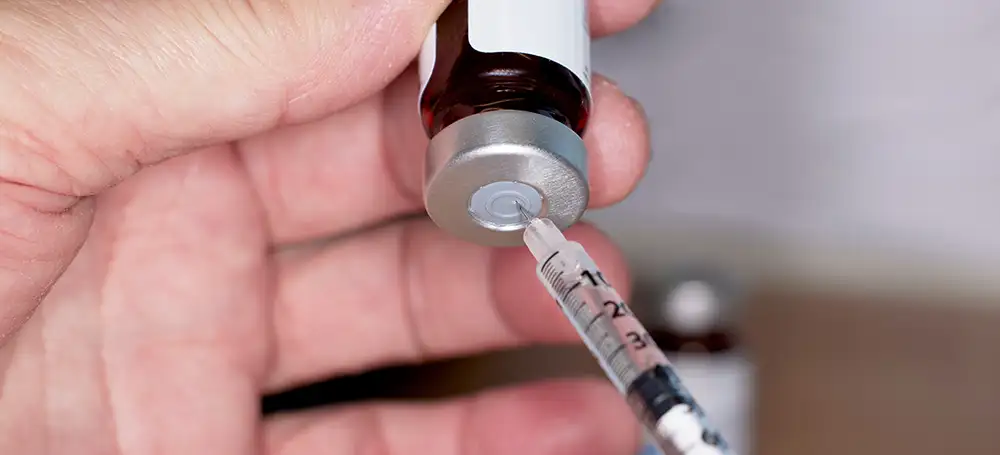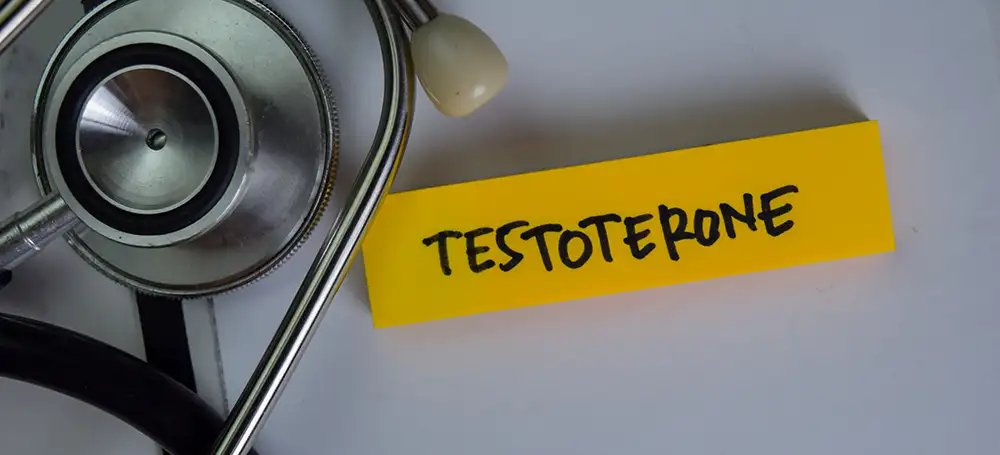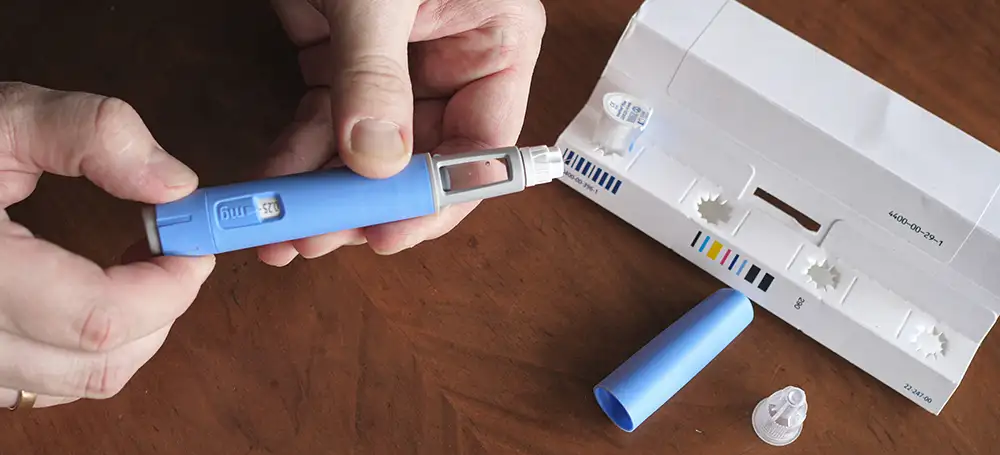 Over the past several years interest in anti-aging medicine has skyrocketed. As we advance medically and scientifically we are asking why we accept the natural process of aging and the symptoms associated with “just getting old.”
Over the past several years interest in anti-aging medicine has skyrocketed. As we advance medically and scientifically we are asking why we accept the natural process of aging and the symptoms associated with “just getting old.”
For men, sometime in their 30’s they can begin to experience some of the symptoms of low testosterone such as fatigue, low libido, muscle loss, increase in fat, sleeping issues and so forth. These symptoms get worse and more pronounced as we enter into our 40s, 50s and 60s. Often times testosterone replacement therapy (or TRT as it is sometimes referred to) helps. Testosterone replacement therapy actually replaces the testosterone that the body should be producing but isn’t. It can help to reverse some of the symptoms associated with Low T including those mentioned above. There is much research that still needs to be done but a consensus may be developing toward the conclusion that TRT is helpful for many men and can be a complete life changer for some.
Dr. Michael Zachareas, the Urologist behind Boston Vitality in Stoneham, Massachusetts, says that if someone is looking into TRT they should see a Urologist. He says, “A Urologist is most up-to-date when it comes to testosterone. In fact, I think everybody whose on testosterone should see a urologist. I would argue that your primary care doctor is not as up to date as we [urologists] are…primary care doctors think it increases things like prostate cancer or enlarged prostate and the most recent data says that it does not. So every person who is on testosterone should see a urologist. We do it as much, if not more, than the endocrinologists.”
However, there are still a lot of misconceptions about testosterone replacement therapy. What are the risks, is it really safe, do we know enough about it? When I asked Dr. Zachareas about this he answered, “They thought it would increase such things as cardiac disease. Well, now they’ve shown that it lowers blood sugar, lowers blood pressure, lowers cholesterol, actually is protective for the heart not harmful for the heart so any progressive primary doctor who I know, and I know [only] one, would tell you that it would be helpful.”
“I always tell people this and it’s a great way for people to get it, the best argument I always have and it’s one that no one really argues back is this: what’s the difference between a young man and an older man. Young men typically don’t have problems with blood pressure, blood sugar or cholesterol. Old men do. So, what’s the difference between us? We’re meant to hold our testosterone into 500, 600 even into our older age. If we are meant to have normal testosterone, who is any doctor who is telling you that you shouldn’t have what God wanted you to have? So if we are supposed to have our normal testosterone levels then we should keep our normal testosterone levels.”
This makes one wonder whether or not there is a reason whey men are losing their testosterone. It has been observed recently that testosterone levels in men are lower than they were a generation ago. Forbes wrote an article recently in which they discussed a prominent study done in 2007 published in the Journal of Clinical Endocrinology and Metabolism. I asked Dr. Zachareas about this. I asked if there were something in the environment or in the food supply that was causing men to lose their testosterone prematurely. He said, “That hasn’t been elucidated yet but I’m sure they’ll find something…exposure to toxins, and who knows, now with different foods we eat there probably is but we were getting sprayed with mosquito trucks when we were kids so we were exposed to a lot more toxins a while ago so maybe its an accumulation. We don’t know.”
So if TRT is beneficial, what should men be concerned about when they consider starting testosterone therapy? One of the issues may arise with long-term use of testosterone replacement therapy. Dr. Zachareas notes that while TRT is really good for men who need it, there are some issues to consider including what the long term effects on your testicles are and what happens if you stop using it. He also says that because of these potential complications, it is that much more important to see a urologist because they understand how this works and can be more progressive and pro-active in prescribing the right mixture of medications. It’s not just testosterone, he says “let’s look at the bigger picture. If you keep using testosterone is will cause your testicles to not work, in fact they get lazy. If you have people that go on testosterone…let’s say someone’s testosterone is at 230 and you put them on testosterone and they jump to 500 or 600. When they go off of it…they go back to 120. Well why did they go lower? Because the testicles stopped working. So the testicles get lazy and I tell people its like if you have a factory that makes cars. If you shut it down for 2 or 3 years and then just try and turn the factory back on and make more cars. Well, the factory doesn’t just turn itself back on. And I find that most primary care doctors just use testosterone instead of using products that can also increase the testicles natural production of testosterone. Products like Clomid or HCG. These are more progressive treatments for TRT than just testosterone alone. I prefer to use medications that continue to involve the testicles in the process. Why would you just shut them down? Because patients invariably stop their medications and they don’t stay on it for life and they come back 2 or 3 years later just bottoming out because they’ve been off of it and their testosterone is so low. So if you start testosterone alone you’re essentially turning the testicles off and I can’t tell you if they’ll turn back on. So a lot of times I’ll recommend they are also on medication to keep the testicles working.”
Dr. Zachareas had sold me on the idea that a urologist was the correct type of doctor to see for TRT. I then asked him why someone would go to Boston Vitality or a boutique type office instead of just going in to see your doctor. He replied, “If you had an electrical problem in your house, are you going to go to your general contractor to do your electrical work or are you going to go to your electrician? And further, testosterone, most of the time, isn’t covered by your insurance. Even if patients came to my general urology practice trying to use their insurance, their testosterone is not covered. Most of the time people are paying out of pocket. I would say 90% of the time they are paying out of pocket for their testosterone treatments. Insurance companies need to understand that testosterone is essential for correct blood sugar, cholesterol and blood pressure, and I can’t say that enough, it’s good for your cholesterol, blood pressure and blood sugar, but until the standard medical community accepts that and accepts all the data for that then it’s better to go to a place like Boston Vitality, a specialist, as opposed to going to someone whose just going to tell you that your testosterone is at 300 and that’s OK. But you don’t feel good. You’re not just treating a number. And that’s not to say I’m going to treat someone who has a testosterone level at 600 who doesn’t feel good because that may be malpractice. But someone who has low or moderately low testosterone and they don’t feel good, they will feel better if they have increased testosterone.”
He went on to give examples about himself and his own personal experience. He said “I had a low testosterone and moving me into 500 or 600, I’ve never felt better, I’ve never felt stronger, I’ve never felt more energy and frankly nobody half my age keeps up with me.”
In medicine, he says, we treat the patient, not just numbers. That’s why he says it’s important that patients be seen and heard and not just analyzed as a numbers from a blood draw. We need to feel the patient, talk to the patient he said.
When it comes to TRT, you don’t want “just well enough” you want it done correctly. And Dr. Zachareas says that that is why Boston Vitality and places like it are a very good option when men are considering testosterone therapy. He finished by saying, “Look. If you go to a general doctors office, even a general urologist, they have 30-40 patients a day that they have to see and someone coming in with low testosterone don’t have immediate life threatening problems (although they are important problems for male health). And Boston Vitality is concierge medicine because you are focusing on just low testosterone and erectile dysfunction.”











